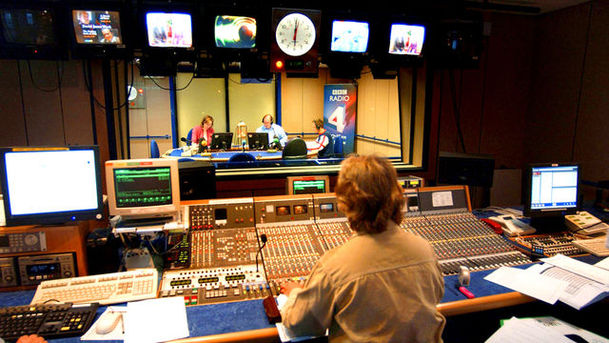Today - 30/09/2009

Presented by Sarah Montague and James Naughtie. The Sun newspaper has said that 'after 12 long years in power, Labour has lost its way and now it has lost us too'. Political correspondent Iain Watson gauges the mood from delegates in Brighton as the news broke. More than 18 million households with Freeview will need to retune their set-top boxes and TVs later. Ilse Howling, managing director of Freeview, discuses why the technical changes need to be made and explains how boxes and televisions can be retuned. IVF success rates are now almost indistinguishable between clinics so patients need to take other factors into account, the regulator says. Alan Doran, chief executive of the HFEA, discusses a new website providing patients with detailed information on every UK clinic, from waiting times to multiple birth rates. Pope Benedict XVI is releasing a music album. It has the same producer as the record released by his predecessor, John Paul II. Reporter Nicola Stanbridge listens to the album and considers the significance of including a Muslim composer. US president Barack Obama has stressed that the Afghan war was not purely an 'American battle', as he met NATO leader Anders Fogh Rasmussen for talks. Correspondent Ian Pannell, who has just come back from an embed with US troops, examines why the commanders on the ground want more troops. In his speech to the conference, the prime minister said the government would 'have to make choices about taxation and public spending' without offering any detail as to what those choices might be. Former home secretary David Blunkett discusses what choices need to be made. In the run up to the winner of the Man Booker Prize for Fiction being announced, the Today programme is speaking to all six shortlisted authors. Arts correspondent Rebecca Jones talks to AS Byatt about her novel, The Children's Book. Thought for the Day with the writer Rhidian Brook. Women who have fled violence in Darfur now face the prospect of being raped in refugee camps in Chad, Amnesty International says. Tawanda Hondora, deputy director of Amnesty's Africa programme, discusses the attacks alleged in most of the 12 refugee camps along the Sudanese border. Michel Bonnardeaux, spokesman for the UN mission responsible for making the camps secure, Minurcat, explains efforts to make the camps safe. 'After 12 long years in power, Labour has lost its way', the Sun newspaper says. Prime minister Gordon Brown discusses why the Sun has withdrawn its support and his party's chances of winning the next general election. Prime minister Gordon Brown talks to the Today programme about his party conference speech and criticism from the Sun newspaper about his leadership. Political editor Nick Robinson examines what Mr Brown said. US prosecutors have disputed claims that Roman Polanski's arrest - for unlawful sex with a 13-year-old girl 30 years ago - came out of the blue, saying he had been on an Interpol 'wanted list' for years. Criminal psychologist Dr David Holmes and Michael Mansfield QC discuss whether people should still be sought and prosecuted for crimes committed long ago. Camel milk has been prized for centuries by communities in Africa and India for its supposed curative properties, but it has not been commercially produced in Europe. Reporter Paul Henley visits this continent's first camel farm, situated in the village of Cromvoirt in the Netherlands. A tsunami triggered by a strong quake in the South Pacific has killed at least 65 people in Samoa and more than 20 in American Samoa, say reports. Thousands more are thought to be homeless. Georgina Newton, who runs a car hire company in American Samoa, describes the scene. In 2005, the Sun newspaper warned Labour it had 'one last chance' and now it has withdrawn its support for the party. Daniel Finkelstein of the Times and former Downing Street adviser Matthew Taylor discuss whether or not Gordon Brown is still the right man for the country.